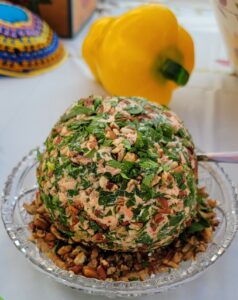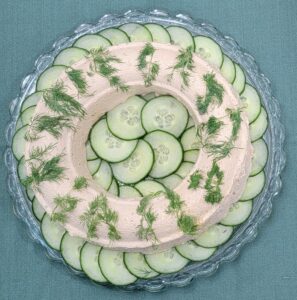As Jewfolk’s new food writer, my passion is sharing recipes, tips, tricks, and ideas to help you add meaning and joy to your Jewish holiday celebrations. You might ask, “Gayle, how can you write about food for Yom Kippur, a holiday focused on NOT eating?”
It’s true that we fast for 25 hours, but we have to eat before and after the fast, so there’s my hook. Here are some tips to help make your fast easier and ideas about what to eat before and how to break your fast.
Don’t fast if it’s not safe for you. Jewish law prohibits you from putting yourself in danger by fasting. Women who are pregnant or nursing, elderly folks, small children, and people with any type of illness or condition that would make fasting unsafe should not fast. If you take medication, ask your pharmacist if it’s all right to take it with a little bit of water before or during the fast. If you must eat something with your medication, that’s okay too. If you have any questions, consult your physician.
Get Ready to Fast. Begin preparing for your fast the day after Rosh Hashana. Reduce your intake of caffeine (to avoid that headache) and anything else you might miss, such as tobacco, alcohol, sugar, and chocolate.
Get and stay hydrated. Sports drinks can help you hydrate, but watch out for added sugar. Energy drinks are loaded with caffeine, so you’ll want to limit them as well. Unsweetened coconut water has natural electrolytes that help with hydration. Of course, plain or carbonated water works, too; add some fruit or a couple of slices of cucumber if it gets boring.
Eat reasonably the day before, especially at supper. Eat foods that are easy to digest. The pre-Yom Kippur meal is not a celebratory, festive meal, so a simple menu of soup or salad, roast chicken, side veggies, and a baked potato is sufficient. Don’t eat anything too salty or spicy, which will make you thirsty, and avoid gassy vegetables like broccoli or brussels sprouts. And don’t eat too much. Overeating in the evening won’t make you less hungry the next day; it might just make you uncomfortable instead.
Break your fast slowly, and don’t eat too much. Most synagogues offer a little something to break your fast as soon as the final shofar blows, usually juice and honey cake. Absolutely have some but go slow. Gulping down too much food too quickly can also make you uncomfortable and cause an upset tummy.

At home, we usually break our fast with a dairy meal. And we all know what that means – bagels and lox! Yes. We Jews have a love affair with salmon in all its forms but smoked salmon with bagels, and cream cheese has become a quintessential symbol of Jewish food. Let me offer two salmon variations that are always a hit – Salmon Ball and Salmon Mousse. They’re both super easy to make ahead of time, and both recipes can be doubled for a larger crowd. They can be made with canned salmon or plain cooked salmon, which are more affordable than smoked salmon for a crowd. Whether you’re hosting a break-fast or asked to bring a dish, either one of these will be a winner.
Over the years, we’ve broken our fast with many different friends. Some dishes always seem to appear on the table, including Blintz Souffle’ (look in any synagogue cookbook for a recipe), some form of vegetarian lasagna, sweet noodle kugels, Deviled Eggs or egg salad, fruit salad, and several sweets, including babka and honey cake. One family we know lays out a sundae bar for dessert.

A few words about the Yom Kippur experience. I don’t think Yom Kippur is anyone’s favorite holiday. It’s a long day in synagogue and for many of us the prayers are challenging and hard to connect with. And of course, there are the restrictions. In addition to fasting, we are told to avoid intimacy, wearing leather shoes, and bathing. Between our physical discomfort and frustration with the liturgy, it’s no wonder that we struggle to find meaning in the day.
I found this explanation in The Observant Life: The Wisdom of Conservative Judaism for Contemporary Jews, published by the Rabbinic Assembly and edited by Martin S. Cohen and Michael Katz. The modern language helps me focus a bit on the purpose of the day.
“Yom Kippur challenges us to confront honestly the people we have become, to dare to envision the persons we wish we were (and know we could actually become), and then to begin the hard work of moving ourselves from where we are to where we wish to be. Yom Kippur is a long, exhausting, and difficult day not because of the fasting, but because of the emotional and spiritual concentration required.”
I especially like “dare to envision.” Too many of us feel stuck, and I like the idea of “daring” myself to think outside my box. If the liturgy doesn’t inspire you, find some reading material that does. The world of online Jewish resources offers something for everyone. I wish you an easy fast and a meaningful Yom Kippur.



















Thank you for the article. It is very helpful and there are a lot of good ideas.